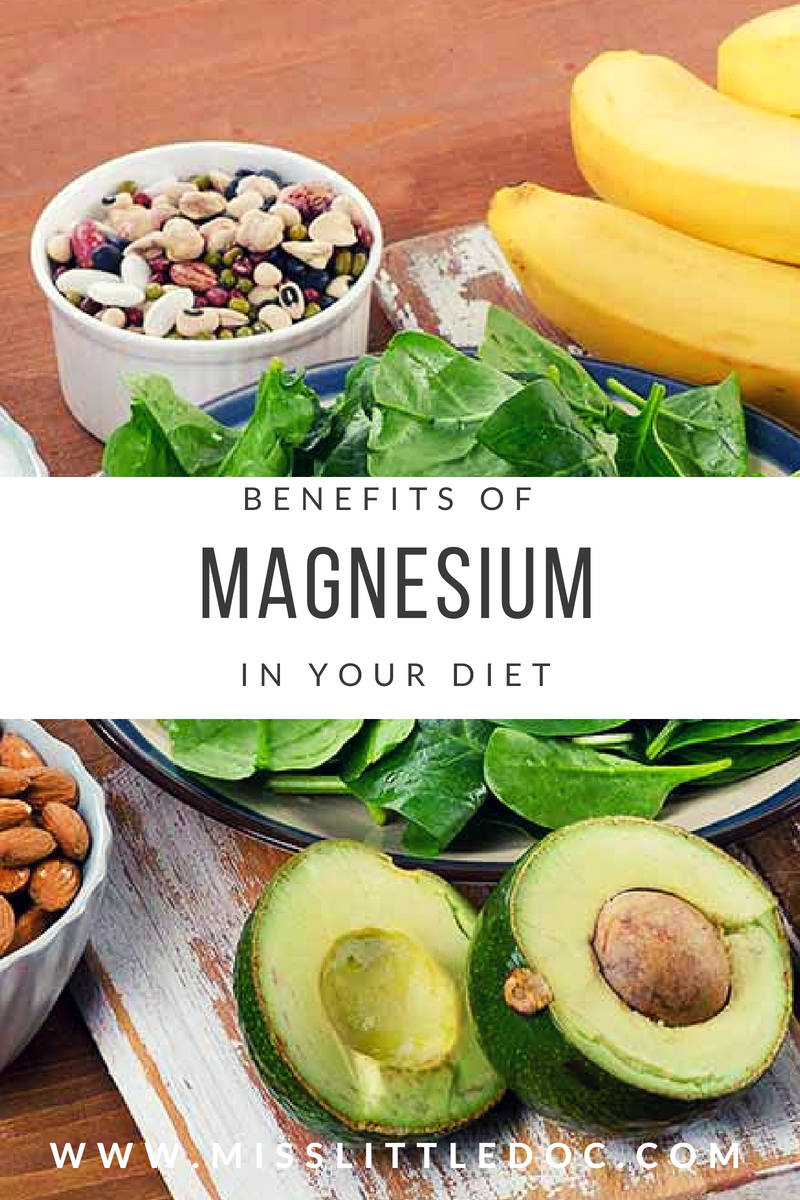Benefits of Magnesium in Your Diet
Are you getting enough Magnesium in your diet? When you think of Magnesium, most people think of muscle cramps. Magnesium plays an important role in many areas of your body.
Magnesium is a co-factor for hundreds of enzyme reactions within the body. These enzymes are vital for a variety of important processes such as the conversion of energy from carbohydrates, fats and protein, DNA synthesis, blood sugar balance, formation of bones and bone health, a calm nervous system, blood pressure and sleep quality.
Magnesium is involved in helping to regulate calcium, vitamin D, and hormonal balance. So low magnesium levels can lead to chronic fatigue-type symptoms, low mood, anxiety, eye tics, insomnia, high blood pressure, muscle cramps (which can be due to low calcium too) and a poor tolerance to dealing with stress.
Symptoms of magnesium deficiency include:
- Loss of appetite
- Nausea
- Vomiting
- Fatigue
- Weakness
- Abnormal heart rhythms
- Numbness or tingling
- Muscle contractions and cramps
Why Would I be Deficient?
Diet plays a huge role in how much magnesium we are getting. Medications that you are taking can play a factor in depleting your magnesium. Drinking soda or alcohol, eating too much sugar on a daily basis, having surgery, diabetes or a hormone imbalance can also play roles for low magnesium.
Medication use includes: Estrogen in birth control, certain antibiotics, diuretics, corticosteroids, asthma medications, certain heart failure medications, anti-cancer drugs, and antipsychotic and antischizophrenic drugs.
How to Up Magnesium Intake?
DIET!! First off evaluate your sugar intake. Then start adding magnesium rich foods into your diet.
Magnesium rich foods:
- Green leafy vegetables (spinach and kale)
- Fruit (figs, avocado, banana and raspberries)
- Nuts and seeds
- Legumes (black beans, chickpeas and kidney beans)
- Vegetables (peas, broccoli, cabbage, green beans, artichokes, asparagus, brussels sprouts)
- Seafood (salmon, mackerel, tuna)
- Whole grains (brown rice and oats)
- Raw cacao
- Dark Chocolate
- Tofu
- Chlorella powder

There are also lotions, gels, bath flakes and oils that you can use. Or you can take a magnesium supplement.
For more information on Magnesium benefits Check out Ancient Minerals.com
What Chiropractic Can Do
It all goes back to the nervous system. When you have a proper functioning nervous system all of your other systems work better. A chiropractor can evaluate your diet and help you make changes along with checking for areas that need to be adjusted.
If your diet is on track, but you are still needing a boost of magnesium we can offer a high quality magnesium supplement to add to your daily routine. If you want more information regarding what you can do to help your health contact us! We would love to help.
~Dr. Lacey~
Carder Chiropractic Clinic, INC.
El Reno, OK 73036




